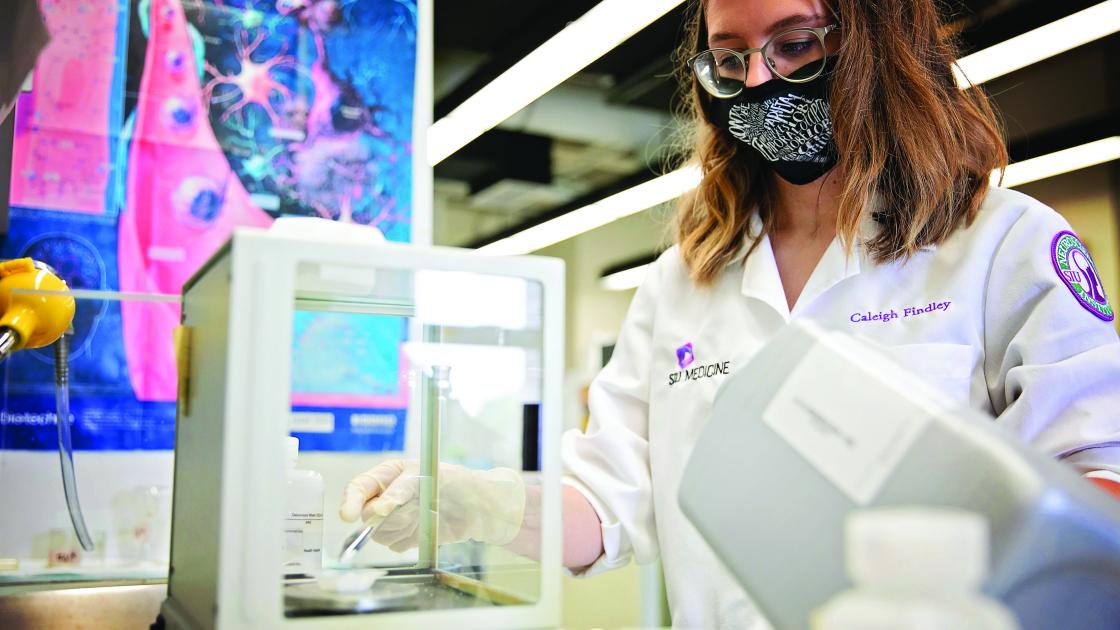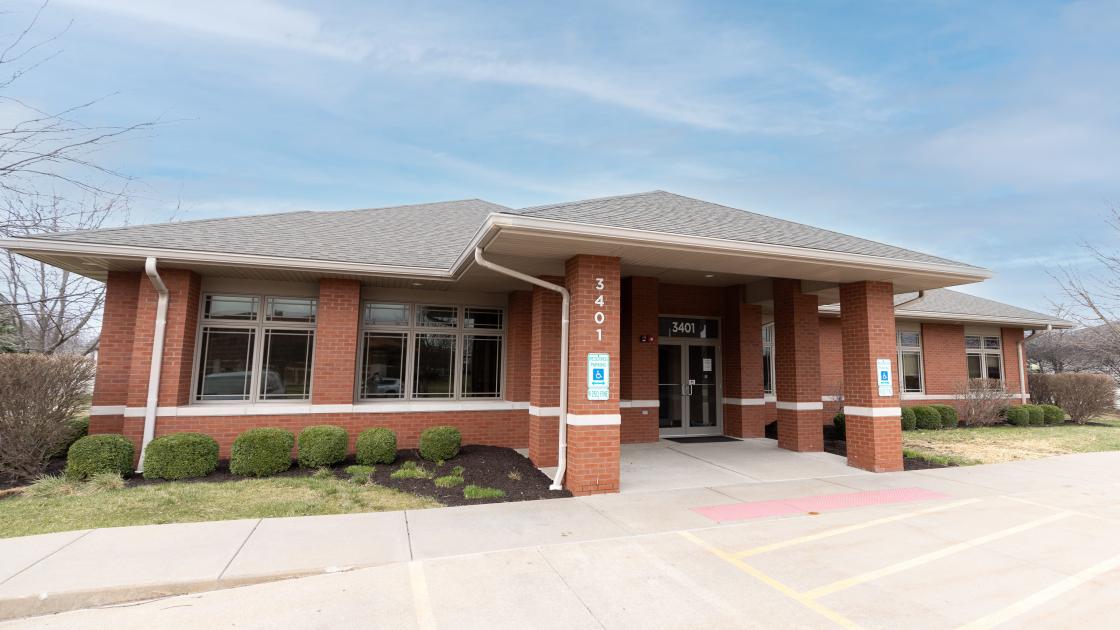
SIU researchers track COVID’s impact on dementia
Kevin Hascup, PhD, assistant professor of neurology, recently received funding through an NIH grant to research the link between COVID-19 and cellular senescence and its possible impact on Alzheimer’s disease pathology.
The novel coronavirus SARS-CoV-2 (COVID-19), along with respiratory and “flu-like” symptoms, led to an unexpected rise in strokes, brain hemorrhaging, and memory impairment in young (30s and 40s) COVID-19 patients. These phenomena sparked scientific studies of the impact of COVID-19 on the brain, which showed that the virus could infect the brain’s nerve cells, called neurons, and then kill them.
Coronaviruses can enter a neuron through a doorway into the cell called the ACE2 receptor. This receptor is located on the surface of cells and is found all over the body. Though ACE2 does not appear as often in the brain, it is found in neurons inside the hippocampus, a seahorse-shaped structure that plays an important role in learning and memory. Some COVID-19 patients experience memory loss, which may be explained by the virus infiltrating hippocampal neurons through the ACE2 receptor.
Scientists think that the coronavirus may turn neurons into a zombie-like state known as cellular senescence. Typically, this refers to a cell that is technically alive, but does not go through the cell cycle to grow and divide. Neurons do not divide like other cells, but may revert to this dormant state when detecting a viral invader, to protect against infection. It’s a brilliant defense mechanism, but it becomes dangerous as these senescent cells begin to release molecules that cause inflammation. This contributes to what researchers have deemed “inflamm-aging,” when chronic inflammation damages brain cells, causing lasting effects typically seen in older populations, such as memory loss. As Dr. Hascup explains, “Once the virus enters the brain, the question becomes, what is it doing? If it is permanently stopping the cell cycle, this could have much longer-term implications than just the duration of the virus in the body.”
Unfortunately, the populations that are already experiencing deteriorating brain health—the elderly and patients suffering from progressive neurodegenerative diseases like Alzheimer’s disease—are most susceptible to viral damage in the brain. Research suggests that older patients are at greater risk of the virus entering the brain because of a weakened blood-brain barrier. This tightly packed layer of cells acts as the gatekeeper to the brain, preventing harmful toxins and pathogens from entering.
Dr. Hascup says barrier weakening occurs faster in Alzheimer’s patients than in normal, elderly patients, putting them at significant risk of viral brain damage. Once the virus passes the barrier, it activates the brain’s innate immune response and eventually leads to inflammation of the brain. Dr. Hascup aims to explore the extent of senescent cell burden and inflammation that may occur after COVID-19 infection, and how this could impact clinical symptoms, like memory loss, in Alzheimer’s disease mouse models. Investigating this connection is vital to understanding how the pandemic may impact patients with neurodegenerative diseases and bring forth potential therapeutic targets for further study.
Researchers at SIU fear COVID-19 poses a huge risk to long-term health, though the extent and nature of this risk remain uncertain. As the elderly population swells with each passing year, future studies will uncover the lasting damage of contracting COVID-19 on this community.



